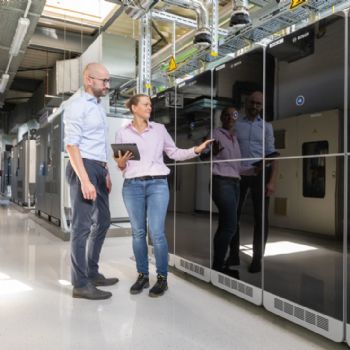 Bosch
Bosch,
Centrica and
Ceres recently launched a whitepaper —
The role of hydrogen in decarbonising UK power generation — which explores the challenges and opportunities of decarbonising the UK’s electricity system, with a focus on the role of hydrogen to create power via solid oxide fuel cells (SOFCs). At the recent
COP29, Prime Minister Keir Starmer confirmed the UK’s goal to be the first major economy to deliver clean power by 2030, and said hydrogen will be essential in making that ambitious target a reality.
SOFCs are the size of a large fridge and can be stacked together; and locations with a ‘high install base’ of these — such as California — are demonstrating, the value this technology can have in sectors that cannot risk power outages, such as hospitals and data centres.
In the whitepaper, analysis on the routes to achieving ‘net zero’ show that “an integrated energy system, using both electricity from the grid and hydrogen, can achieve significant cost savings and support achieving decarbonisation goals. Renewable energy rarely produces a consistent amount of electricity, but excess generation could be stored as hydrogen to manage intermittency and reduce curtailment.
“A hydrogen backbone in the UK would connect producers with consumers and unlock the full benefit of hydrogen storage. In addition, incorporating hydrogen into the energy system resolves issues of relying on a single energy vector and can increase our energy system resilience.”
According to interviews with industry stakeholders, which form the basis of the whitepaper, there are waiting times of more than five years for new connections to the grid in some regions, which can hinder the development of new housing and businesses, as well as the uptake of distributed renewable generation. Fuel cells could offer a viable alternative to diesel generators or grid extensions, as they can provide clean and reliable power on-site until a grid connection is available.
The whitepaper also discusses the gaps in policy and regulation around the storage, distribution and usage of hydrogen. A recent House of Commons report acknowledged that hydrogen ‘has the potential to contribute to the delivery of the government’s commitment for a fully decarbonised power sector by 2035’ but there is currently no mechanism in place to support this.
The whitepaper can be found on the Centrica website
here.